African art profoundly expresses the continent's rich cultural heritage, spirituality, and symbolism. Beyond its aesthetic appeal, African art serves as a medium for communicating with the divine, honoring ancestors and reflecting the deep spiritual beliefs that are integral to many African societies.
The art form embodies an intricate interplay of color, pattern, and meaning from sculptures and masks to murals and terracotta pieces. This article explores the symbolism and spirituality in African art, focusing on the artistic decor at ChallawaRiver Homes, including colorful terracotta heads and a mural inspired by Efik culture.
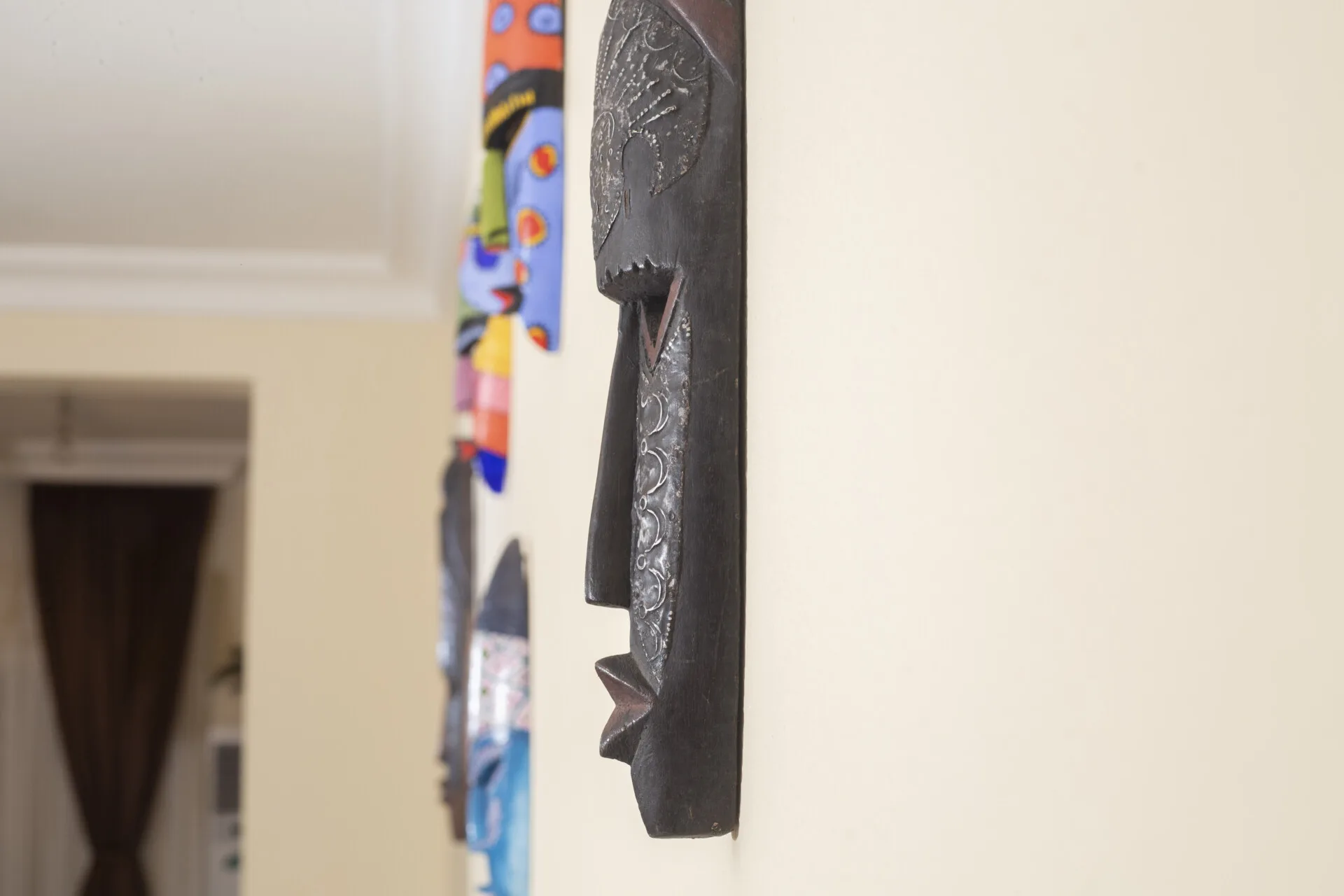
The Spiritual Significance of African Art
At the heart of African art is its connection to spirituality. Traditional African religions, as documented, emphasize the existence of a complex spiritual realm inhabited by deities, ancestors, and other supernatural forces. Artworks often function as conduits for communication with these entities, used during rituals to invoke blessings, protection, or ancestral guidance. For instance, sculptures like the Dogon carvings of Mali embody ancestral spirits and are used in ceremonies to bridge the gap between the physical and spiritual worlds.
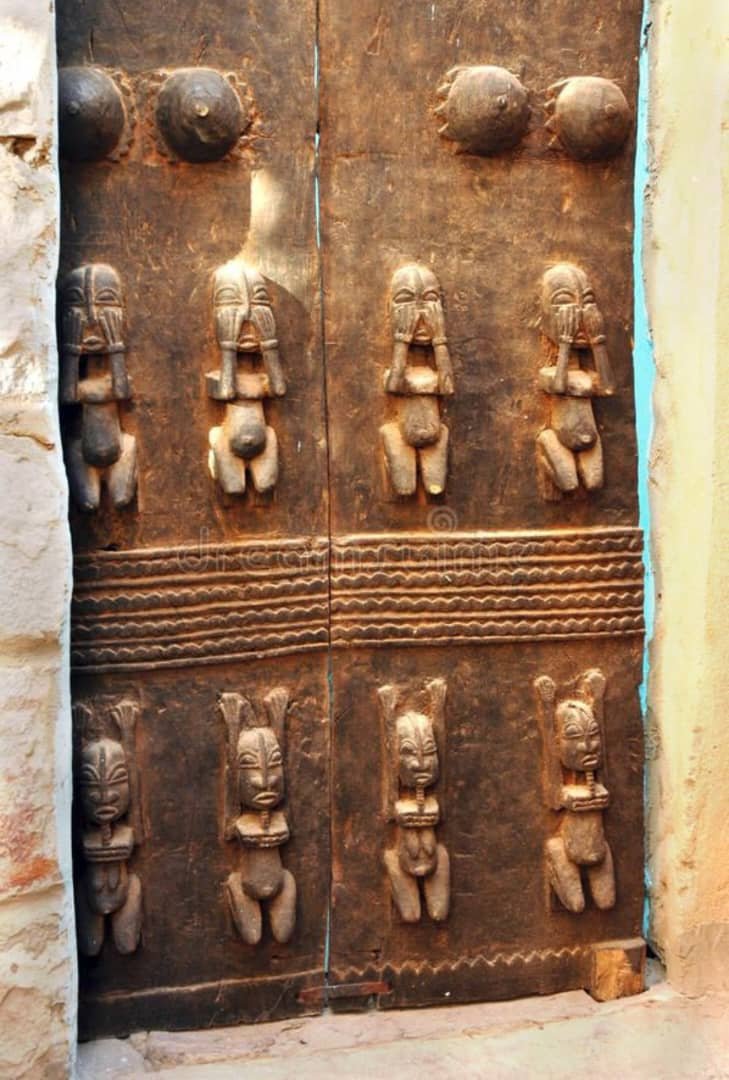
Masks also play a crucial role in spiritual practices. Intricate designs from cultures like the Bwa of Burkina Faso or the Dan of Côte d’Ivoire channel spiritual energy during ceremonies, often representing deities or ancestors. The symbolism extends to the use of colors and patterns—blue is often associated with wisdom, while red signifies danger or vitality, underscoring the deep layers of meaning embedded in each creation.
Ancestral Spirits in African Art
Ancestral spirits are pivotal in African spirituality, serving as intermediaries between the living and the divine. Artworks such as sculptures and masks are believed to embody these spirits, enabling communities to seek guidance, protection, and blessings. For instance, the Igbo Ikenga figure symbolizes personal strength and achievement, while Yoruba ceremonial masks honor ancestors during festivals.
This reverence for ancestors is evident across various African cultures:
Igbo (Nigeria): Ancestral spirits are celebrated through figures like the Ikenga, which reflects strength and guidance.
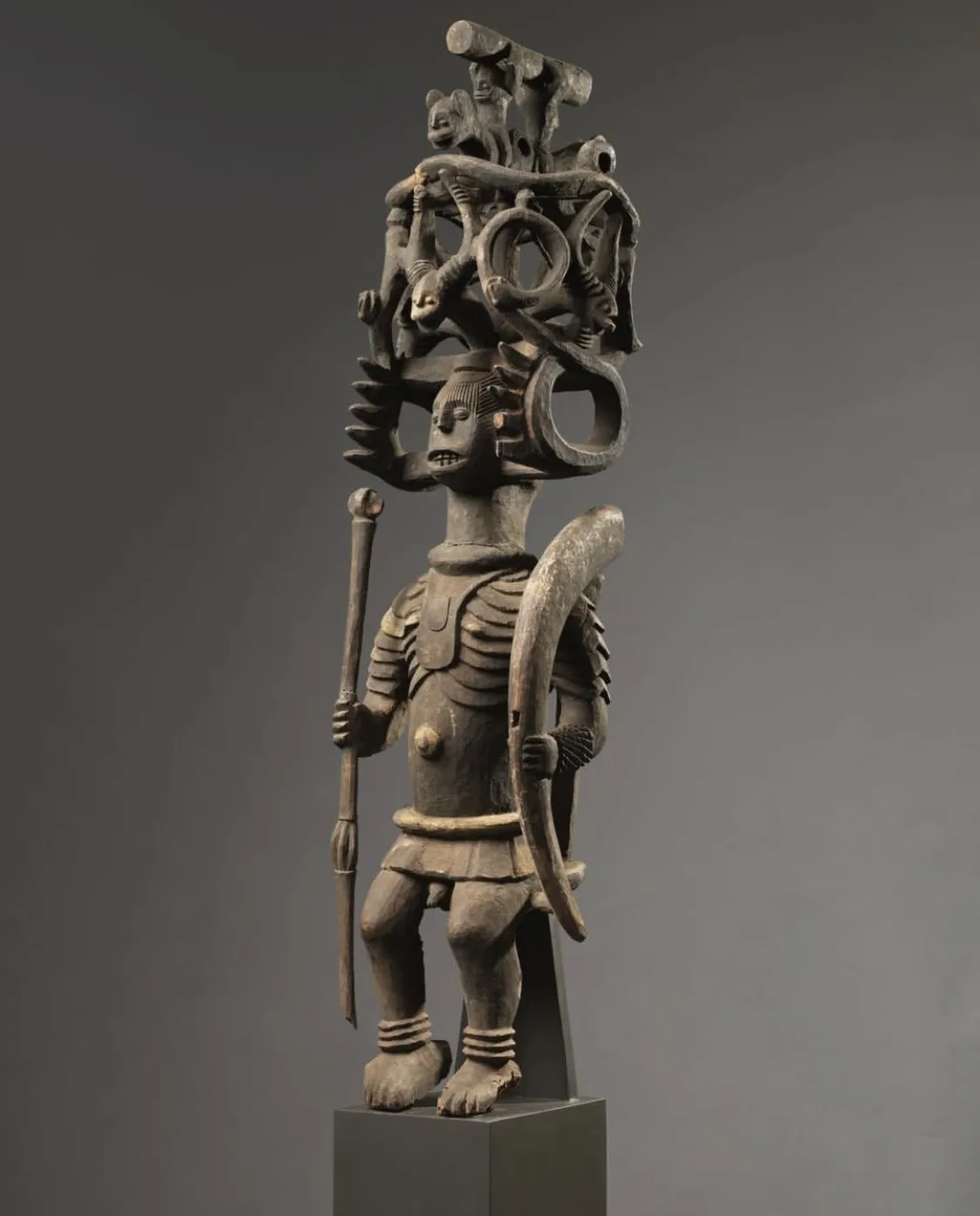
Zulu (South Africa): Ancestral spirits are thought to inhabit natural elements, such as rocks and trees, influencing daily life.
San (Namibia and Botswana): Sacred caves serve as communication sites with ancestors during rituals.
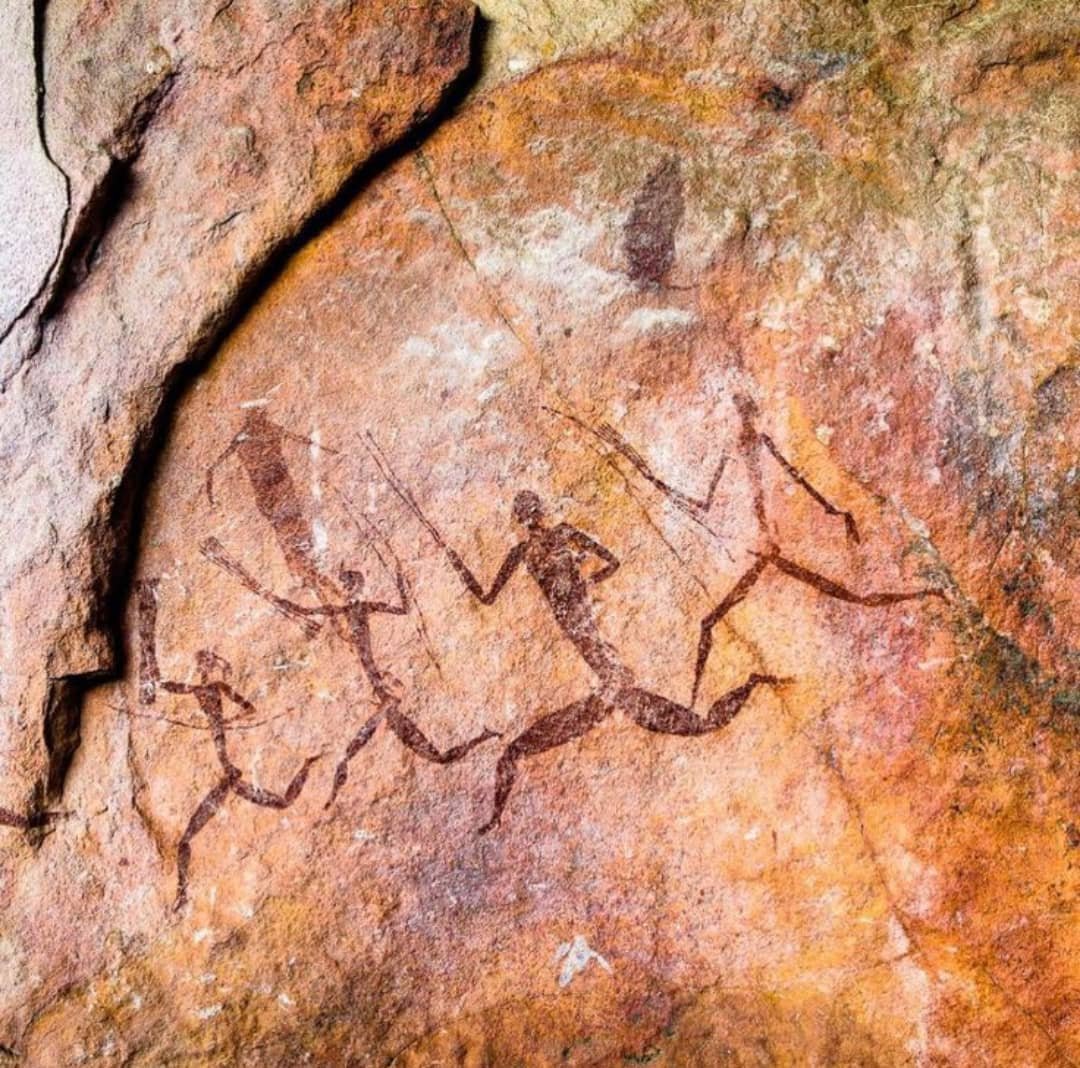
Yoruba (Nigeria): Elaborate masks invoke the presence of ancestors during religious ceremonies.
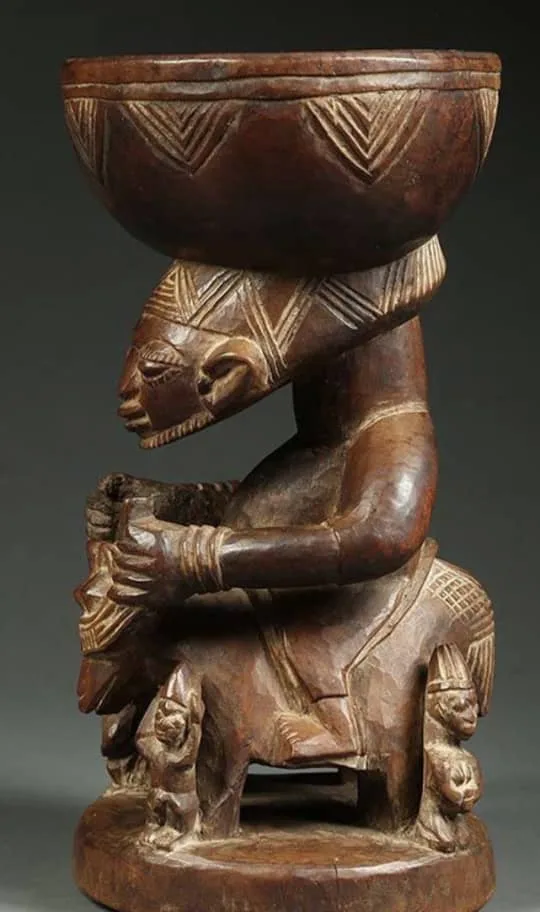
These practices highlight the diversity of African spiritual traditions while emphasizing shared beliefs in the cyclical nature of life and the enduring influence of ancestors.
Symbolism in Patterns and Colors
African art’s use of patterns and colors serves as a visual language, conveying philosophical and spiritual concepts. The Akan people of Ghana use Adinkra symbols to express wisdom, unity, and other values.
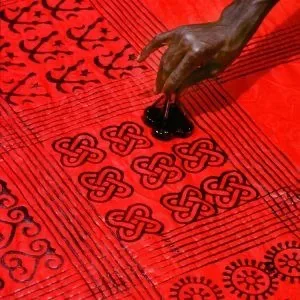
Similarly, colors carry distinct meanings: blue represents wisdom and peace, while red signifies vitality or danger. These elements are often woven into textiles, pottery, and other art forms, creating pieces that are decorative and deeply symbolic.
African Art and Modern Interpretation
Contemporary African artists continue to draw inspiration from traditional spirituality while exploring modern themes. For example, Nigerian artist Peju Alatise blends traditional motifs with contemporary mediums to explore identity and spirituality. This fusion of old and new underscores the timeless relevance of African art as a medium for storytelling and cultural preservation.
Symbolism in ChallawaRiver Homes Decor
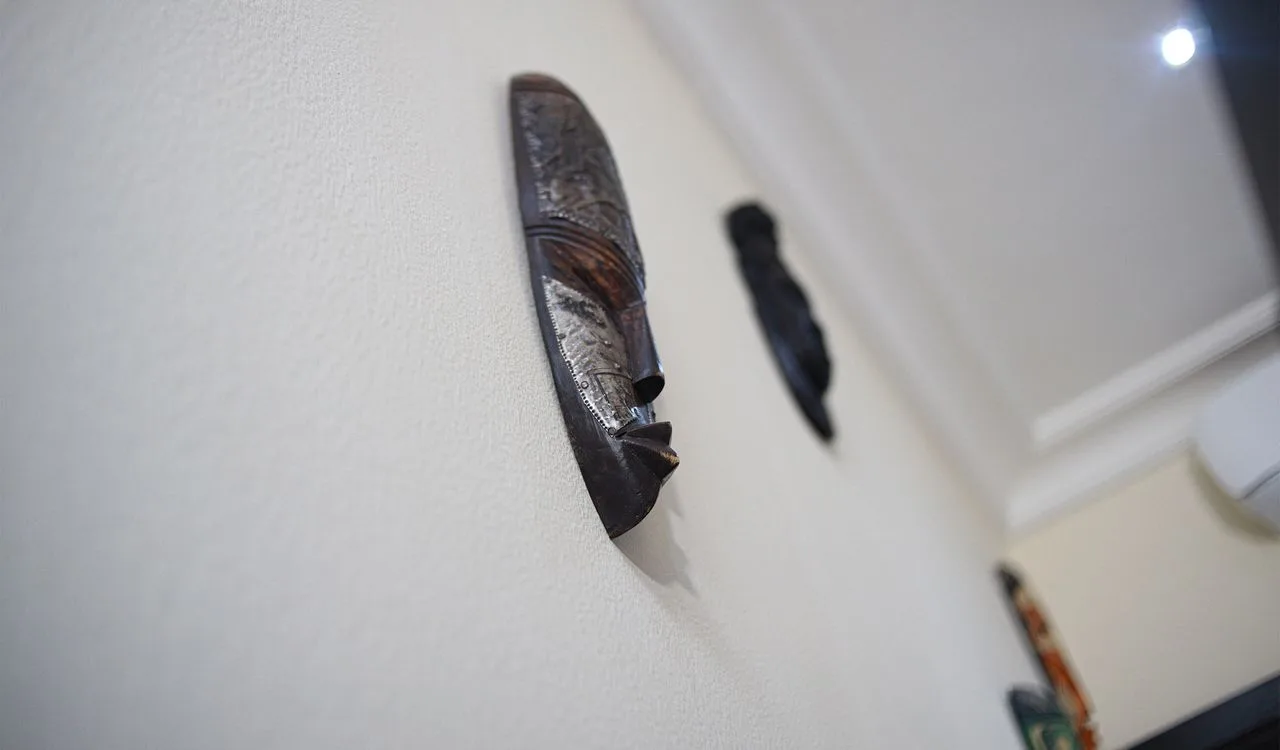
ChallawaRiver Homes stands as a haven for art enthusiasts, featuring decor pieces that celebrate African symbolism and spirituality. Among its highlights are the colorful terracotta heads, which pay homage to the Nok culture of Nigeria. These terracotta pieces echo the ancient practice of using sculpture to represent ancestral spirits and convey cultural identity.

Another notable feature is the Efik-inspired mural, which is a nod to the rich heritage of Cross River State. The mural showcases Indigenous women’s hairstyles, a traditional marker of identity and status, alongside nsibidi symbols—an ancient writing system used by the Ekpe society to communicate spiritual and social concepts. Together, these elements create a visual narrative that honors Efik culture while reflecting the broader themes of African spirituality and symbolism.
The Role of African Art in Rituals and Ceremonies
In many African societies, art is deeply intertwined with rituals and ceremonies. Masks, for example, are central to initiation rites, harvest festivals, and funerary ceremonies. They are believed to channel spiritual forces, transforming the wearer into a vessel for divine energy. Similarly, sculptures often serve as ritual objects, embodying deities or ancestors invoked during ceremonies to ensure prosperity or protection.
This ritualistic aspect of African art is a testament to its spiritual significance but also a reflection of the communal values of many African cultures. Through art, communities reinforce their connection to the spiritual realm, ensuring the continuity of traditions and beliefs.
Symbolism and spirituality are the lifeblood of African art, shaping its form, function, and meaning. From ancestral sculptures and ceremonial masks to the vibrant decor at ChallawaRiver Homes, African arts bridges the physical and spiritual worlds. The colorful terracotta heads and Efik-inspired mural at ChallawaRiver Homes are not just decorative pieces but powerful symbols of cultural identity and spiritual heritage.
As African arts continues to evolve, its rich tapestry of symbolism and spirituality remains a source of inspiration and reflection. Whether in traditional settings or modern interpretations, African art invites us to explore the profound connections between the seen and unseen, the earthly and the divine.
It is a legacy that transcends time, offering insights into the values, beliefs, and resilience of African communities.